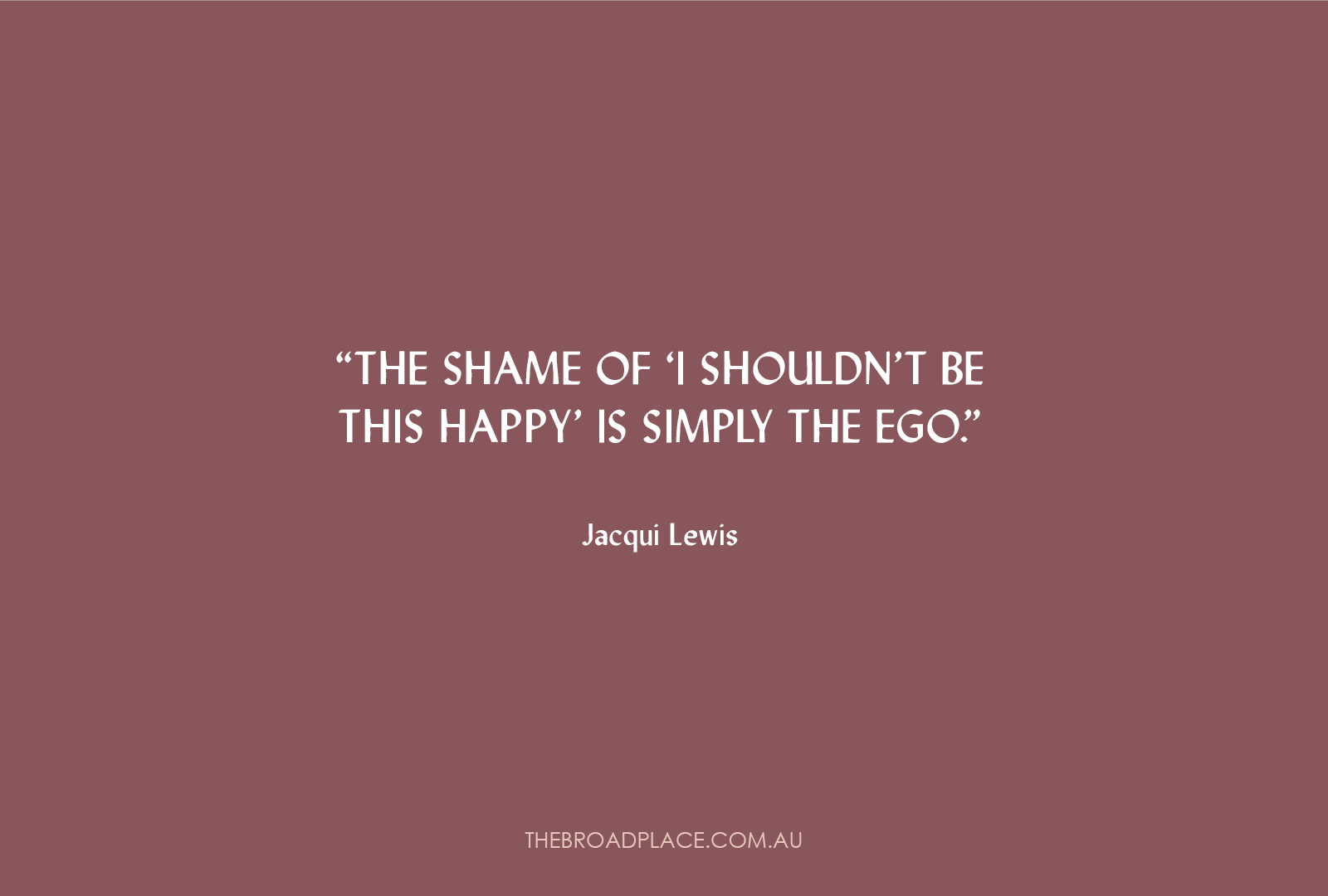I received this lovely email from a reader, ‘Hey Jac, a question related to this. I’ve sometimes felt like a “Fool” for enjoying a happy and exciting moment when inevitably the bad news comes my way. My ego says “see? you shouldn’t have been so happy, now look”. But shouldn’t we be able to enjoy the good things when they come? I suppose conversely then we “lament” the bad too? Confusing’.
It’s such a familiar line of thinking I thought I would also share my response with you to shed some light on the workings of the ego, and it’s chameleon approach that befuddles us so often!
Hello,
Oh yes, the ego is a tricky beast. The happiness and excitement and the ‘bad’ news are all part of the package. The key is to take an equal approach, welcome them both, and enjoy them for what they are. It’s only ‘bad’ news as we are branding them as such. There are juicy learnings and gifts within each experience. Seung Sahn a Korean Zen monk teaches ‘Don’t Know Mind’ which is to be open to all experiences, with curiosity and a letting go of the minds constant need to know what’s going on. Employing Don’t Know Mind is incredibly refreshing.
Then we can enjoy it all, without the guilt and resentment. The shame of ‘I shouldn’t be this happy’ is simply the ego. The anticipation of something bad happening, is simply the ego too. Our hearts are patient, all knowing, grounded. There is a beautiful book by Christina Feldman I am enjoying immensely for she is a remarkable teacher, called The Buddhist Path to Simplicity. Within it, she describes;
‘If a group of people were taken to the foot of a mountain, each person intending to climb to the top, every individual would approach the ascent guided by their own personal story and by their inner sense of possibility or limitation. There would be the person who takes one look at the trail and retires in despair without even taking a single step. There would be the person equipped for every eventuality with parachuter, pitons, rations, and a hot water bottle. There would be the person who throws away the map and attacks the hardest route, driven by the ambition to be the first to the top. There would be the climber who manages to ascend halfway before getting lost in the pleasant views, quite forgetting the rest of the journey. There would be the climber who has spent countless hours rehearsing and planning each step of the journey. There might also be that rare person who sees how far there is to go but remains unhurried, carefully placing each foot on the ground; who delights in the views and the sounds but never gets lost; whose journey is completed in every step. This last is the path of simplicity – always available to us in each sight. Step, event, and moment. It is the path of peace and completeness’.
What type of life mountaineer will you be? How can you break the bonds of your personal mythology and become more free and fluid, so you don’t carry outdated storylines and ideas up the mountain with you? For they will weigh you down.
I hope this helps bring some clarity.
Jac xx

